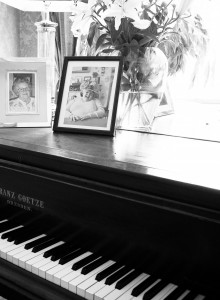Signs & Symptoms of Dementia
Dementia affects a person’s memory, cognitive ability, perception and communication. It can cause a number of symptoms, which will often manifest differently in different people.
There are many types of dementia, and some people may suffer from a combination of types. In the early stages, each type of dementia will manifest with its own particular signs and symptoms. This is because in different types of dementia, different parts of the brain are affected first. As the disorder progresses, the damage spreads throughout the brain. This is when symptoms become more similar in different types of dementia, since more and more of the same areas are affected.
Here are some common signs and symptoms of dementia:
- Memory loss
- Changes in Behaviour
- Difficulties with language and communicating
- Aggression
- Loss in sight or hearing
- Hallucinations or Problems with perception
- Sleep disturbances
- Depression, Apathy and anxiety
- Walking about
Memory loss is most common in the early stages of dementia. Many affected people also develop behaviour that can seem unusual or out of character. As the condition progresses, the affected person will need more help performing ordinary tasks. Eventually he/she will become completely dependant on others, requiring specialist care.
At this stage, loss of memory may become very pronounced. The person will be unable to recognise familiar objects, surroundings and even people (though sudden flashes of recognition are not uncommon). These changes can be distressing for the affected person and his/her carers. Find out more about the early, middle and late stages of dementia Here.
Caring for a loved one with developing dementia requires specialist understanding. Particularly since the disorder manifests differently in each individual, and symptoms change over time. At Cedars Care Group homes we provide person-centred care. Our professionally trained staff offer residents and their families one-to-one support on what can often be a difficult journey. Find Out More
Some of the information in this section has been sourced from the Alzheimer’s Society website.

















